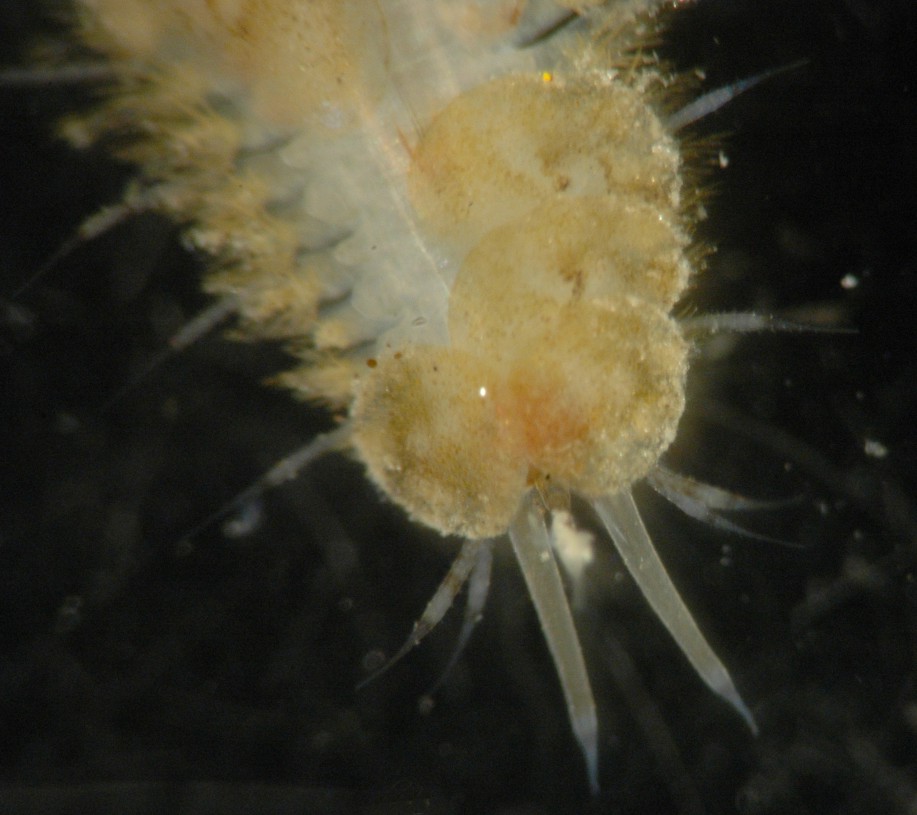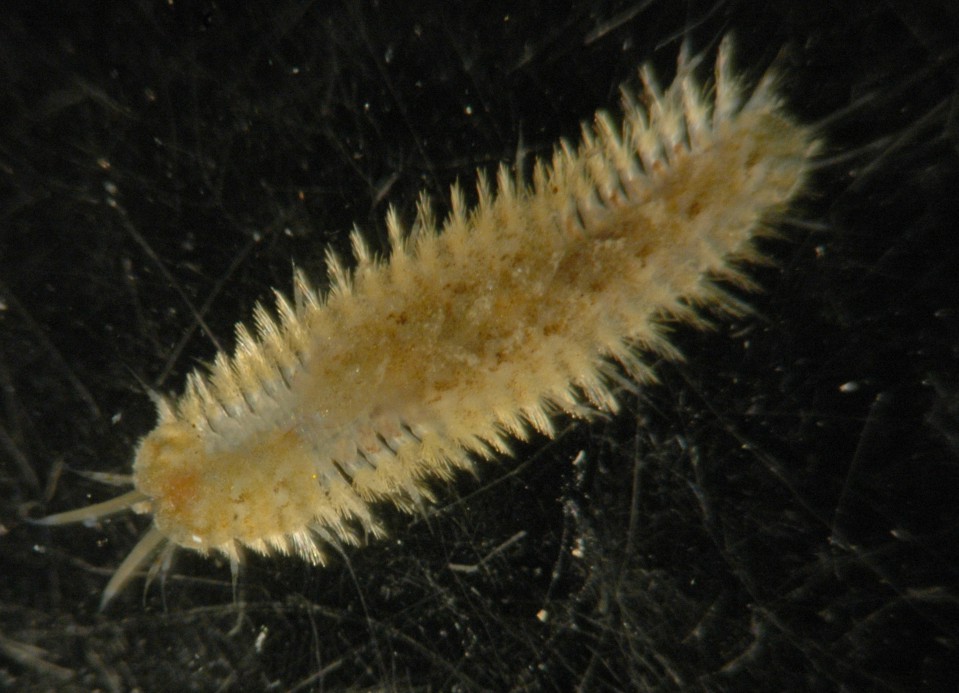How to Distinguish from Similar Species: Other Polynoid scaleworms have more than 12 pairs of elytra (usually 15 or more).
Note: Leslie Harris (personal communication), a polychaete specialist from the Natural History Museum of Los Angeles County, says this individual does not look right to be L. squamatus, and that they also are not likely to be found along our coast. It may perhaps be L. spiculus, which does not appear in either the Kozloff key nor the Carlton key.
Geographical Range: Cosmopolitan, Atlantic and Pacific. On our coast from Alaska to California.
Depth Range: Low intertidal to 46 m or more.
Habitat: Free-living in kelp holdfasts, under rocks, and among barnacles or mussels.
Biology/Natural History:
This species often curls into a ball when disturbed.
Omnivorous,
feeding both on animals and on algae. Sexually mature males
are pale
due to sperm within the body, while females are dark gray to green.
| Return to: | |||
| Main Page | Alphabetic Index | Systematic Index | Glossary |
References:
Dichotomous Keys:Carlton, 2007
Kozloff, 1987, 1996
General References:
O'Clair
and O'Clair, 1998
Scientific Articles:
Web sites:
General Notes and
Observations: Locations,
abundances, unusual behaviors:
../../Glossary/Glossary.html#Elytron
This dorsal view of the anterior body shows the rough elytra
(several are missing). Note the particles of debris adhering
to the
elytra
and elsewhere, and the brownish coloration on the elytra.
Authors and Editors of Page:
Dave Cowles (2009): Created original page
CSS coding for page developed by Jonathan Cowles (2007)
